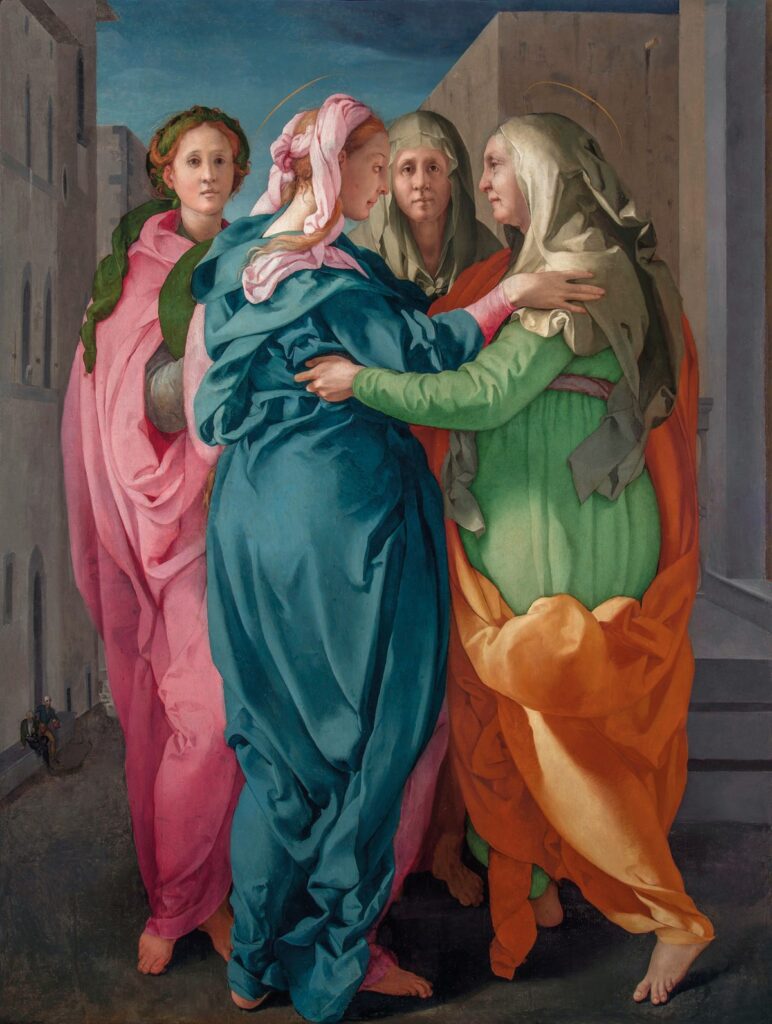Note: If you wish to receive, via e-mail, (1) my weekly newsletter or (2) daily copies of these posts, notify me at rrbates1951@gmail.com and indicate which you would like. I promise not to share your e-mail address with anyone. To unsubscribe, send me a follow-up email.
Sunday
For our Advent Study, our church read Mary of Nazareth: The Mother of Jesus as Remembered by the Earliest Christians by Christopher Bryan, who used to teach at the School of Theology here in Sewanee. Bryan takes issue with those who see Mary as meek and mild.
After all, this is a woman who was willing to question an angel before going along with the plan and who undertook a 175 kilometer journey to consult with her cousin Elizabeth (who was carrying the future John the Baptist) when she herself was newly pregnant. Her “Magnificat,” meanwhile, has inspired the Liberation Theology movement. Here’s her declaration, which is also today’s Gospel reading:
My soul magnifies the Lord,
and my spirit rejoices in God my Savior,for he has looked with favor on the lowliness of his servant.
Surely, from now on all generations will call me blessed;for the Mighty One has done great things for me,
and holy is his name.His mercy is for those who fear him
from generation to generation.He has shown strength with his arm;
he has scattered the proud in the thoughts of their hearts.He has brought down the powerful from their thrones,
and lifted up the lowly;he has filled the hungry with good things,
and sent the rich away empty.He has helped his servant Israel,
in remembrance of his mercy,according to the promise he made to our ancestors,
to Abraham and to his descendants forever.”
This, as one liberation theologian cited by Bryan, observes,
is a concrete manner in which to live the gospel: inspired by the Holy Spirit, and in solidarity with all people before the Lord. In this sense the Magnificat is a pattern for every prayer, every praise of God; at the same time it is one of the New Testament texts with the most strongly political and liberating content. It calls on us to take the words totally concretely and to fight against oppression in order to take seriously the Lord of history.
Bryan isn’t the only one to challenge the characterization of Mary as “meek and mild.” As Denise Levertov observes in “Annunciation,”
No one mentions
courage.
The engendering Spirit
did not enter her without consent.
God waited.
She was free
to accept or to refuse, choice
integral to humanness.
And further on:
She did not cry, ‘I cannot. I am not worthy,’
Nor, ‘I have not the strength.’
She did not submit with gritted teeth,
raging, coerced.
Bravest of all humans,
consent illumined her.
The room filled with its light,
the lily glowed in it,
and the iridescent wings.
Consent,
courage unparalleled,
opened her utterly.
Bryan observes that Mary not only obeys and is faithful but is “eager and diligent” in pursuing the meaning of her pregnancy, which is why she journeys to see Elizabeth. “Nowhere in Israel’s entire Scripture and records of God’s servants,” he adds, “is there an acceptance quite so powerful and unqualified as this.”
He also quotes C.S. Lewis, who notes that in Mary we find “a fierceness, even a touch of Deborah, mixed with the sweetness in the Magnificat to which most painted Madonnas do little justice.” Theologian Ann Loades, meanwhile, points out,
A woman who will quiz an archangel, give her (rapturous? enthusiastic?) assent, or agreement to the divine spirit working within her, risk scandal and single parenthood is, one might think, something of a risk-taker, and by no means a model of submission, subordination and passivity.”
“Mary, bravest of all humans.”


